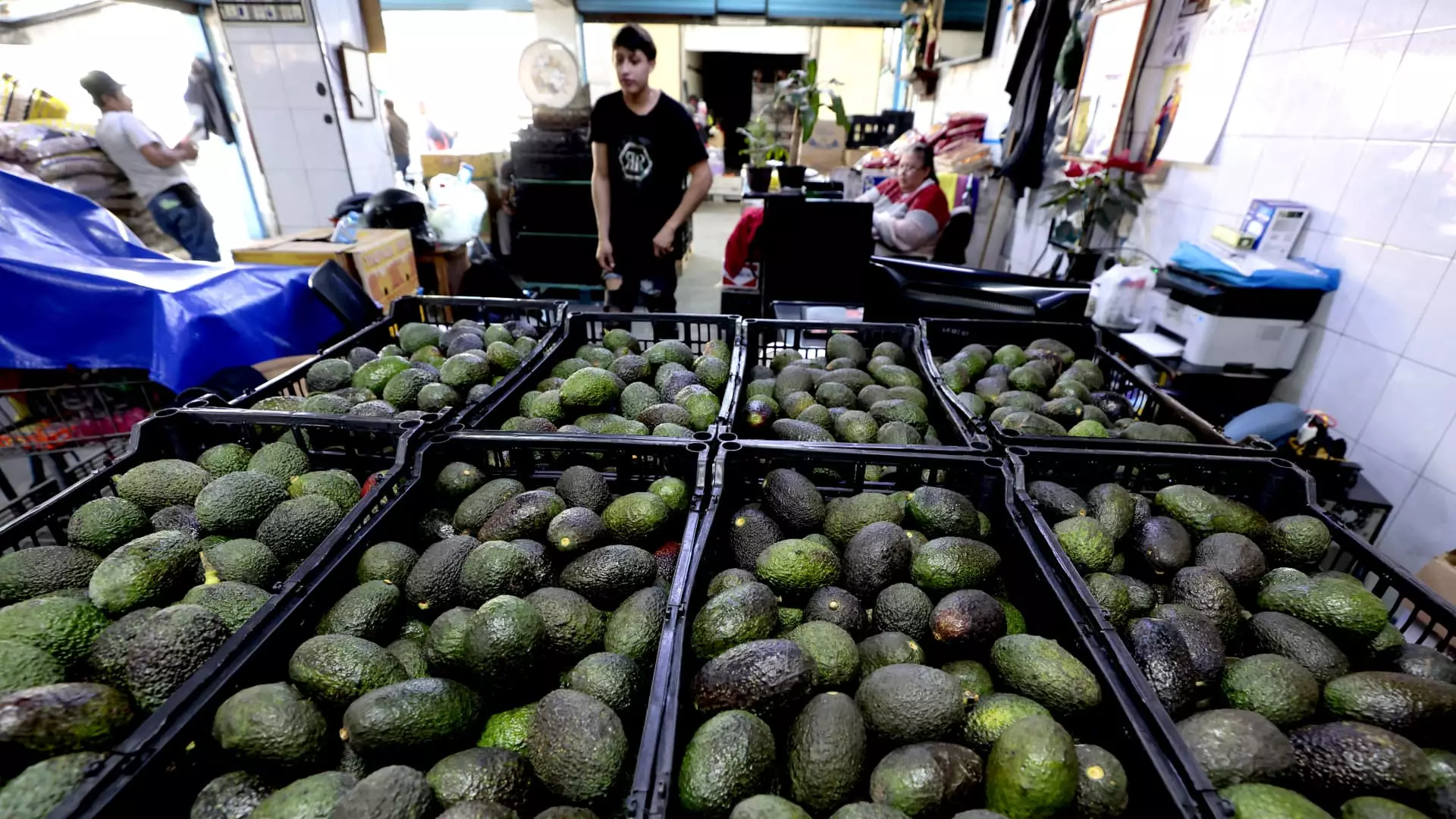In recent discussions surrounding international trade, the impact of tariffs has emerged as a significant point of concern for various industries. Chipotle Mexican Grill’s recent statements regarding the potential tariffs on imports from Mexico and Canada provide a snapshot of how companies navigate these challenges. President Trump has indicated that tariffs could affect essential imports, notably avocados and beef. However, Chipotle’s strategic sourcing practices illustrate an adaptability that may mitigate potential cost increases.
Chipotle has smartly diversified its supply chain, a move that diminishes the adverse effects of potential tariffs. On a recent earnings call, the company’s Chief Financial Officer, Adam Rymer, pointed out that approximately 50% of Chipotle’s avocados are sourced from countries beyond Mexico, including Colombia, Peru, and the Dominican Republic. This decision reflects an awareness of Mexico’s market conditions, where avocados have become heavily reliant for U.S. consumption, as it comprises around 90% of U.S. avocado imports. By sourcing avocados from multiple countries, Chipotle safeguards itself against tariffs that could significantly inflate prices on these crucial ingredients.
Despite the looming threat of tariffs, Chipotle’s management suggested that the financial ramifications are manageable. Rymer estimated only a modest increase of 60 basis points (0.6 percentage points) to the company’s cost of sales should tariffs take effect. This insight showcases Chipotle’s preparedness and strategic financial planning. The company has demonstrated solid performance in the face of economic pressures, reporting a robust same-store sales growth of 5.4% in the previous quarter. The ability to maintain profitability, even amidst rising supply chain challenges, illustrates Chipotle’s strong market positioning.
The evolving consumer landscape presents both challenges and opportunities. While diners increasingly focus on value, Chipotle has managed to convey the worth of its offerings, thus maintaining its pricing power. The growing preference for high-quality, fresh ingredients has positioned Chipotle as a leader in the fast-casual dining sector. Even with declining stocks following conservative earnings forecasts, the brand’s profitable trajectory supports the notion that its business model adapts well to changing market dynamics.
Chipotle’s foresight in supply chain management coupled with a strong consumer appeal underscores its resilience in the face of potential tariffs. By relying less on Mexican imports and diversifying sources for key ingredients, Chipotle exhibits a proactive approach to mitigating risks associated with international trade. The company’s performance in recent earnings highlights its strength, suggesting that even in an unpredictable economic climate, Chipotle remains well-positioned for continued success. As the company navigates future challenges, it will be interesting to observe how these dynamics will influence its operational strategies and overall market presence.

